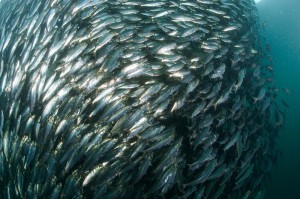At the end of my January 15, 2016, lecture sponsored by the Eugene Natural History Society, I was asked a great question that I didn’t adequately answer. What are the effects of climate change on herring? The best way to answer is how Dongya Yang, Antonia Rodrigues, and Camilla Speller and I addressed the issue in our 2015 paper in Journal of Archaeological Science Reports:
“Although the various types of climate variability in the North Pacific (Pacific Decadal Oscillation, North Pacific Gyre Oscillation, Arctic Oscillation, Pacific-North American Pattern, North Pacific Index, and El Niño Southern Oscillation) have probably affected herring populations, Litzow et al. (2014) found that these cannot explain herring declines over the last 44 years. As these authors write, “…the view of decadal-scale ecological variability in this study region as being dominated by internal climate variability should be expanded to include the effects, at least, of commercial fishing and climate change unrelated to internal variability” (Litzow et al. 2014:45). Although climate variability is worth consideration, it is beyond the scope of this paper because the chronological resolution of such climate data cannot be matched by the temporal resolution of our archaeological data (see also McKechnie et al. 2014). The effects of climate change over century to millennial scales might be detectable archaeologically. We argue that the archaeology of herring is important for the future: archaeological evidence has the potential to reveal information about the past abundance and distribution of herring prior to commercial over-fishing. If we find herring populations to be robust and consistently diverse over long periods of time, it becomes possible to assess anthropogenic effects more effectively. When we better understand pre-industrial fishing, we will have a better idea as to the goals of management efforts to allow for the recovery of herring.”
I hope this is useful to those curious minds that comprise the membership of ENHS, and others as well.
